- Home
- Patrick Robinson
The Shark Mutiny Page 23
The Shark Mutiny Read online
Page 23
Both SEALs could also see there was a basement in the building, and realized this was the place to set a major C4 charge because it would surely bring the entire construction down, wrecking all the control systems, and allowing the hot crude to keep on flooding through the pipes, feeding the fires, just as it had in Texas City, 60 years previously.
And now they were ready. The center was plainly being staffed by the minimum number of people, and Ryan Combs told the two rookies to take the machine gun and cover them while he and Rob went through the front door, which had been unused for at least 25 minutes.
They raced across the yard, Rob carrying the explosives, detonator and plastic, Ryan now with a silenced, even lighter, machine gun, the regular MP-5, right behind him. They pushed open the door and moved into the hallway. Right in front of them was a down staircase, and they took the steps four at a time, swinging hard left at the bottom, and going to work under the stairs setting the plastic bomb for a timed detonation.
It was just 2350, and they set the clock for three hours and 10 minutes. They swung back out of the stairwell at exactly 2351, just as two Chinese staff members came out of a lower-floor operations room. The four men stared at each other in total disbelief, and the two refinery workers, confronted with two armed green-and-brown-faced monsters, turned to run back into their room. One of them shouted one word in Chinese before Ryan Combs cut them both down in cold blood with a burst from his MP-5.
Instantly the two SEALs dragged the bodies back under the stairs, before there was too much blood to clean up. They made sure the two victims would not be easily seen, and then they bolted back up to the main hall, opened the front door and raced back to the shadows where the two rookies waited.
“Everything okay, sir?”
“Except for a couple of Chinamen.”
“Christ, did they see you?”
“Not for long.”
Right then the radio light flickered, and Ray Schaeffer was on the wire informing them of the new meeting point at the first tower at 0100. He was also on the line to Dan and Charlie checking their progress. And shortly after midnight the SEAL team leader knew that all their objectives had been achieved, with the exception of the giant towers.
By 0030, Rob and Ryan had placed their third and final plastic bomb right under a nest of incoming electric wires, and the Chief Petty Officer considered that this wrapped up the entire operation very tidily. He set the clock for two hours and 30 minutes, and, safe in the knowledge that this particular control center was not going to control anything after 0300, he led his men back toward the main pipeline for the shadowy 500-yard journey toward the refining towers.
When they arrived there, they found a scene of silent consternation. The Chinese were still there, still up on the tower, still working. At least two of them were. The others had gone.
“There’s no way we can place the mines on that metal without those guys seeing us,” said Ray Schaeffer. “The risk is too great. We’ll have to shoot ’em. And that’s not easy either.”
“Well, they don’t have a phone up there. How about a diversion, something to get ’em down? How about we set fire to their jeep? That’ll do it.”
“Yeah, and it’ll bring a lot of other guys out here as well. Fire in a refinery is a goddamned nightmare.”
“You don’t say.”
And then the SEALs received what looked like a piece of luck. Both the Chinese technicians began to climb down the ladder from the refining tower.
“How about that? They’re going.”
And so they were. They stepped into their jeep and drove off, leaving the entire area to the three teams of U.S. Navy SEALs, who instantly split up and clamped the magnetic mines onto the designated towers and primed the fuses.
Lieutenant Nathan raced between them, playing out the det cord, splicing it into place and then running it out for the three strands to meet at a central point in the shadows of the number-two tower. Behind him two SEALs carefully buried the cord in the sand, and Clouds checked his watch. It was 0150, and he set the timer for one hour and 10 minutes. It was time to leave.
For the SEALs, that is. Not a two-man patrol of Chinese guards hanging on to the leashes of two huge, brown-and-black, straining Doberman pinschers. They were just arriving. And they had been especially briefed, directly from Shanghai, to be on the lookout for U.S. Special Forces inside the refinery. And alert they were. They came around to the edge of the main tower and were confronted with eight big men, two of them with shovels, four of them with MP-5 machine guns, and all of them with hideously camouflaged green-and-brown faces.
At the moment of sighting, there were 40 yards between the forces of China and the U.S. SEALs. The guards reacted strictly in unison, unleashing the dogs at the touch of a button, and both blowing whistles loudly. Dan Conway reacted first, as the lead dog leaped at the throat of Lt. Nathan. He raised his unsilenced MP-5 and almost blew its head off.
The second dog swerved toward Lt. Commander Schaeffer, and Dan Conway almost cut it in half with a short burst into its neck. By now the guards had their hands on their own weapons, but like the dogs they were too late, and Ryan Combs aimed a withering round of fire from the M-60E4 straight at them. Both died instantly, but the whistles had done their job, and all 12 of the SEALs could hear the roar of a jeep heading from the main pipeline straight toward them.
“COVER!” roared Lt. Commander Schaeffer. “GET RIGHT DOWN…IN THE DARK…RYAN, LET ’EM GET OUT AND THEN LET ’EM HAVE IT.”
The light was poor, but they all saw the lights of the jeep as it came screaming into the clearing between the towers. And they saw the two new guards jump out. Ryan Combs opened up again with the machine gun, and as the guards went down, Ray Schaeffer and Charlie charged forward.
But they did not see a third guard in the back seat who swung his Kalashnikov on them, and shot Ray Schaeffer through the head at point-blank range. His second burst caught Charlie high on the right-hand side of his chest, and both SEALs fell to the ground together.
Again Ryan Combs opened fire, and instantly took out the third guard, leaving just the jeep running noisily, with one dying SEAL on the ground, and another unconscious beside him. There were also five dead Chinese.
Lieutenant Conway took command, ordering the rookie SEALs to get the two wounded men into the jeep. He jumped into the driver’s seat himself and told the rest of them to get in or on, anywhere, but to hold tight while he drove for the southwestern perimeter.
Somehow they all hung on, as the ex-Connecticut baseball catcher gunned the jeep forward, slamming it over the railroad tracks, swerving through the sand, going for the dark pylon, second from the end.
Fifty yards from the fence, he rammed on the brakes, and Clouds Nathan scrambled out and bolted into the holding tanks to their right, where he swiftly set the timing clock on the previous night’s mines for 61 minutes. At this time an eerie siren went off loudly in the control center, just as Clouds came charging around the corner and reboarded the jeep.
“TIME?” yelled Lt. Conway. “WHAT THE HELL’S THE TIME?”
It was just about 0200. The action had taken less than five minutes, and their team leader was down. Dan Conway rammed the jeep right up against the fence, and two more SEALs opened up their private doorway. They piled out and dragged the two wounded men through the gap in the fence. Then the Lieutenant reversed the jeep right against the gap, jumped out and crawled under it to safety on the other side of the wire. Before they left, he tossed their one grenade into the vehicle and blew it to smithereens, covering the gap in the wire with red-hot metal and burning fuel.
And then they set off on their longest journey, carrying their leader and the rookie Charlie between them. They no longer had the mines and the explosives. But their burden was heavy, pursuit was inevitable and their chances of survival were not much better than 60-40.
They reached base camp, administering morphine to the badly wounded Charlie and desperately trying to stop the blood seeping from
Lt. Commander Schaeffer’s shattered skull.
But they all knew it was hopeless. Ray was breathing very erratically, and he died in the arms of Lt. Dan Conway, who was unable to stop the tears cascading down his camouflaged face.
The task of carrying the body back out through the ocean was plainly Herculean—and might even result in their capture, if the Chinese had a further squadron of guards. But the SEALs would not leave him. They changed into their wet suits, and big Rob Cafiero hoisted the Lieutenant Commander over his shoulders and began walking steadily to the beach.
Clouds Nathan and Dan Conway carried Charlie, who was losing blood at a serious rate. They were unable to stop the flow, but they got him into a wet suit and just kept going forward.
At the beach, they regrouped. They had no option but to drag the body of Ray Schaeffer into the water and tow it out to the submarine. The time was 0240, and they had to move, and they had to get their big flippers on, and it took too long because of the mild trauma, despite their training in dealing with death.
But they made it to the shallows and Dan Conway led the way, pulling Ray behind them, much lighter now as the water grew deeper.
Twenty minutes later they were in about four feet, a half mile offshore, and they stopped to look back and witness whatever damage they had wrought. For a few moments nothing happened, then an unbelievable explosion ripped into the night air as the big refining towers went up, every last one of them, sending a bright orange-and-purple sheet of flame into the heavens.
Seconds later the ocean seemed to shake as 60 massive gasoline storage tanks blew up like an atomic bomb. They heard the distant rumble as the control center exploded in a crashing, rolling fireball of flame and falling masonry, and the sky seemed to light up as the oil fire took hold, thousands of barrels of prime crude from Kazakhstan thundering into the inferno, fueling a fire that would burn for six days.
They could feel the heat out there in the water, almost two miles away.
“Jesus Christ,” said Ryan Combs. “Whatever they wanted, I guess we’ve done it.”
“But it wasn’t damn well worth it, was it?” said Dan Conway.
“Steady, Dan,” said Rob. “I don’t think Ray would have wanted you to say that.”
The new team leader just nodded. And the two SEALs turned out to sea, to the west, where the ASDV awaited them. And they kept swimming just below the surface, towing the still and silent body of Lt. Commander Schaeffer between them.
7
160500MAY07. USS Shark.
26.36N 56.49E. Gulf of Hormuz.
Speed 3. Racetrack pattern. PD.
The message from the communication room was not very clear.
“XO-comms. We’re getting something on VHF. But it’s kinda shaky. I’d say about twelve miles away, from the ASDV. I guess they’ve surfaced and may be using a hand-held aerial. But they keep breaking up. We’re still trying. Whatever it is, doesn’t sound good.”
“Comms-XO. You’re not dealing with a MAYDAY, are you?”
“Nossir. But they’re in some kind of trouble…wait a minute, sir…there’s something right now…oh, Jesus, they’ve lost a man, sir…wait a minute…I’ll be right back…stay on the line, sir.”
Lieutenant Commander Dan Headley could hear the background noise in comms…. “Say again…over…. Say again…over….”
He heard Shark’s radio operator repeat twice…“You’re saying ‘dead,’ right? D for Delta? Right?…Please say again…over….”
Three minutes later, the comms chief was back on the line. “As far as I can make out, sir, Lieutenant Commander Ray Schaeffer has been killed, and one of the rookie SEALs, Charlie Mitchell, is very badly wounded…they’re afraid he might die…and they’re asking if we can get the ship in any closer…you know, of course, the ASDV makes only six knots flat out…”
By now Commander Rusty Bennett had materialized in the control room, and Dan Headley repeated to him the bad news.
No one heard the mission commander mutter, “Oh, no. Not Ray.” He just said formally, “Are they sure it’s Ray?”
Dan Headley added, “They were broadcasting from the ASDV. It wasn’t very clear, but I’m afraid we better prepare for the worst.”
“Did they say how badly Charlie Mitchell was hurt?”
“Badly. They’re afraid he might die if he doesn’t get attention soonest. They want us to bring the ship in to meet them. And I’m happy to do so, but you know what happened with the CO last time. He nearly had a heart attack when I changed the orders in even a minor way.”
“Where is he now?”
“I guess asleep.”
“Do we wake him?”
“No. Fuck him. Let’s go get the guys out.”
“Okay. Down all masts. Conn-XO…make your speed twenty knots…steer zero-three-four…fathometer, report the depth…. Navigator-XO…report to me immediately.”
The submarine surged forward, and everyone who was awake heard the distinct change in the rhythm of the ship. Lieutenant Pearson came hustling through the doorway, holding a chart. “Right here, sir,” he said. “We’re in two hundred feet of water, and we can go at least six miles on this course without even thinking about it.”
“Thanks, Shawn….” But he was cut off from further communication by the sudden appearance in the control room of Captain Reid, wearing his pajama trousers, shoes, socks and a Navy sweater.
“XO, might I ask where precisely you are taking this ship when our orders are perfectly clear to remain on station?”
“Sir, right now we are on a rescue mission. The ASDV just radioed in. The SEAL team leader, Lt. Commander Schaeffer, has been killed, and another of the twelve is badly wounded. They called to request we come in and meet them. They are afraid the second SEAL might also die. We’re going in six miles to a probable depth of one hundred fifty feet. If I have to, we’ll continue on the surface until we find them.”
“Lieutenant Commander Headley, you do of course realize that your orders are directly countermanding both mine and those of the flag?”
“Sir. There are ample provisions in Navy regulations to provide for emergency actions in order to save life. Especially one of our own.”
“XO. DO NOT REMIND ME OF THE NAVY’S REGULATIONS. I KNOW A GREAT DEAL ABOUT THEM. AND THE ONE I SUGGEST YOU CONSIDER IS THE ONE THAT GIVES THE COMMANDING OFFICER ABSOLUTE POWER ON HIS OWN SHIP.”
“I am well acquainted with that one, sir.”
“Then, for the second time in as many days, I am ordering you to turn this ship around and return to our correct waiting position at 26.36N 56.49E.”
“Sir,” interrupted Commander Bennett, “as you are well aware, I outrank Lieutenant Commander Headley and it was at my request he agreed to go on a rescue mission, possibly to save the life of one of my most valuable men.”
“Then I must remind you, sir, that you have no rights whatsoever on this ship. And I will not have this interference. What exactly is this? Some kind of damned conspiracy? Well, you’ve picked the wrong man to make a fool of…waiting until I’m asleep and then flagrantly disobeying my orders.”
“Sir, may I just—” But Rusty was cut off in midsentence.
“N-O-O-O. YOU MAY NOT. TWENTY-SIX THIRTY-SIX NORTH, SIR. FIFTY-SIX FORTY-NINE EAST, SIR. THAT’S OUR CORRECT POSITION. AND THAT’S WHERE WE’RE GOING. YOU CANNOT RUN A NAVY FOR A GUY WHO’S PROBABLY CUT HIS GODDAMNED FINGER…RETURN TO OUR DESIGNATED POSITION. AND THAT’S AN ORDER, XO!”
Midnight. Wednesday, May 16.
Office of the National Security Adviser.
The White House. Washington, D.C.
Admiral Morgan had been alone for two hours, since Admiral Dixon had returned to the Pentagon. Both men knew the SEAL team had gone into Iran and that the attack on the refinery was scheduled for the small hours of Thursday morning, an eight-and-a-half-hour time difference from Washington.
Both men knew it had already happened from several different sources: the satellites, the CIA, the embassy in Tehran, the
Brits via Oman on the other side of the strait and a very sketchy item on CNN. The flight-deck crew and almost everyone else on board USS Constellation had seen the fireball from 20 miles offshore. The U.S. Navy knew comprehensibly, from Diego Garcia to Pearl Harbor, from Coronado to Norfolk, Virginia, that a 12-man team of SEALs had just destroyed the world’s biggest and newest Middle Eastern oil refinery.
What no one knew was the fate of the SEALs, and Admiral Morgan paced his office awaiting some news. In his mind he guessed they’d be back in the Shark by around 0800 their time.
As far as he could tell, that was a half hour ago, and so far he’d heard NOTHING. What the hell’s going on? That was Admiral Morgan’s question. He’d kept Kathy on duty, watching her e-mail screen, sitting by the phone, ever ready to bring in the message that everyone was safe. It was a curious trait in his character, since he was now, at least according to his job description, a political adviser. But he was not a political adviser in the place that counted. In his heart, he was still a Navy commanding officer. And that did not permit him to leave the bridge until he knew absolutely that the men were home unscathed.
So why is no one telling me they’re safe? Maybe they aren’t safe? And if not, why not? Again, what the hell’s going on? “KATHY!”
The door opened, and Ms. O’Brien came through it, still quite incredibly glamorous despite the late hour. “I do wish you wouldn’t yell like that,” she said. “It’s so…so…well, uncool.”
“Who the hell else would hear me in this goddamned graveyard?” he rasped.
“Only everyone.”
“Like who? You think they could hear me in the Oval Office, if the President’s still working?”
“My darling, they could hear you in the Rose Garden.”
“Oh, of course. I forgot we got that midnight pruning crew in there, snipping away until breakfast.”

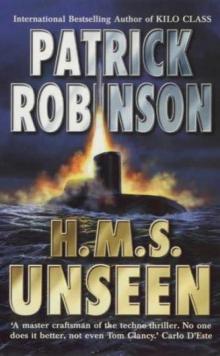 H.M.S. Unseen am-3
H.M.S. Unseen am-3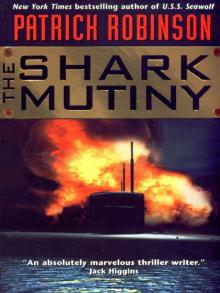 The Shark Mutiny (2001)
The Shark Mutiny (2001)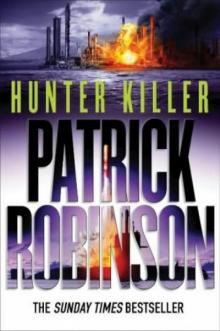 Hunter Killer am-8
Hunter Killer am-8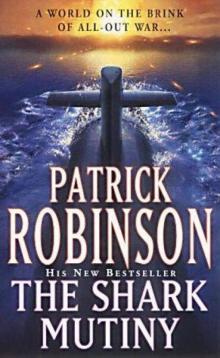 The Shark Mutiny am-5
The Shark Mutiny am-5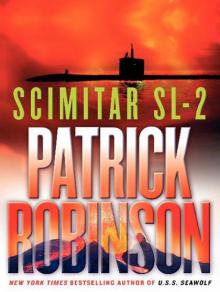 Scimitar SL-2
Scimitar SL-2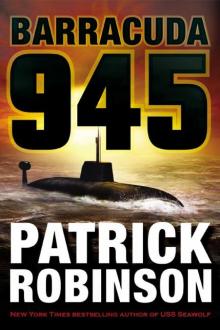 Barracuda 945 am-6
Barracuda 945 am-6 Hunter Killer
Hunter Killer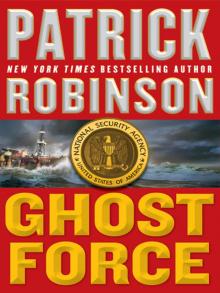 Ghost Force
Ghost Force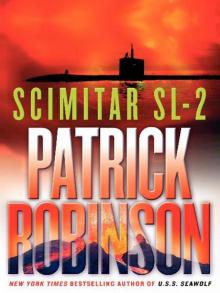 Scimitar SL-2 (2004)
Scimitar SL-2 (2004)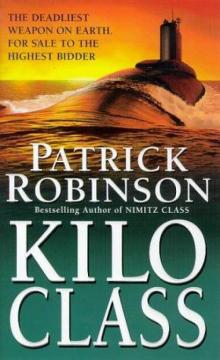 Kilo Class am-2
Kilo Class am-2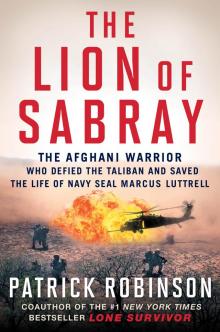 The Lion of Sabray
The Lion of Sabray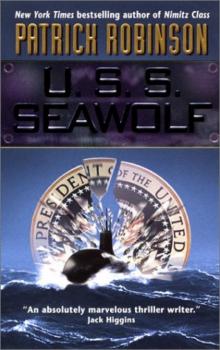 U.S.S. Seawolf am-4
U.S.S. Seawolf am-4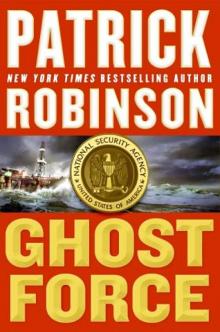 Ghost Force am-9
Ghost Force am-9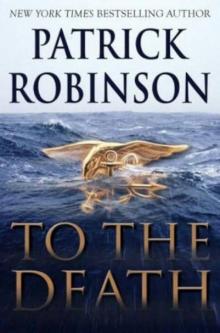 To the Death am-10
To the Death am-10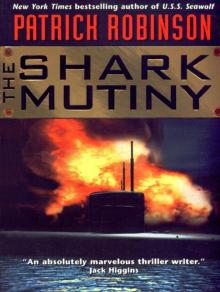 The Shark Mutiny
The Shark Mutiny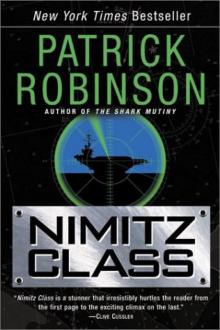 Nimitz Class am-1
Nimitz Class am-1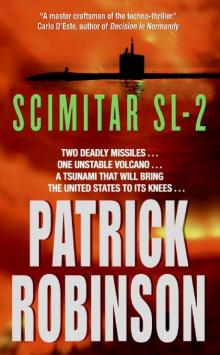 Scimitar SL-2 am-7
Scimitar SL-2 am-7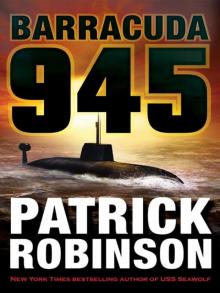 Barracuda 945
Barracuda 945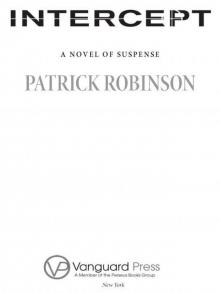 Intercept
Intercept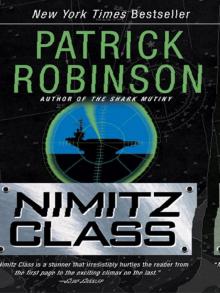 Nimitz Class (1997)
Nimitz Class (1997)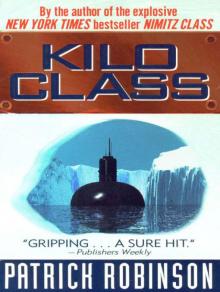 Kilo Class
Kilo Class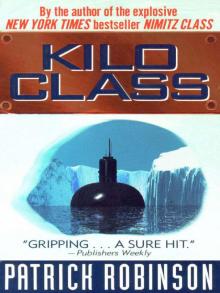 Kilo Class (1998)
Kilo Class (1998) Diamondhead
Diamondhead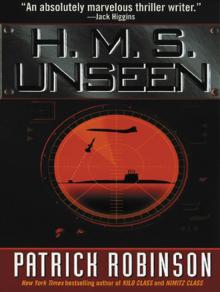 H.M.S. Unseen
H.M.S. Unseen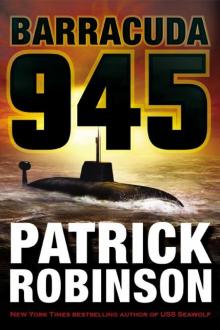 Barracuda 945 (2003)
Barracuda 945 (2003)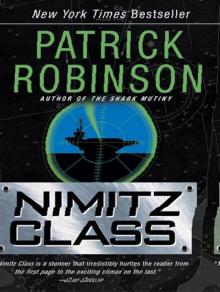 Nimitz Class
Nimitz Class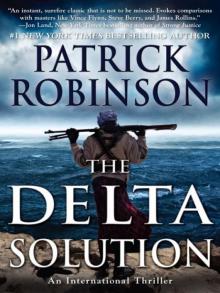 The Delta Solution
The Delta Solution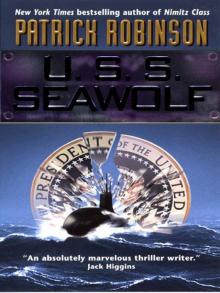 U.S.S. Seawolf
U.S.S. Seawolf